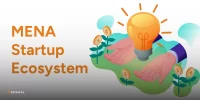U.S. State Department announced a commitment of $41.1 million to the Vision for Adapted Soils and Crops (VACS) initiative. Hosted by the UN’s International Fund for Agricultural Development (IFAD), VACS is a multi-donor trust fund focused on enhancing soil fertility, promoting crop diversity, and increasing agricultural productivity. These efforts aim to support small-scale farmers facing the challenges of unpredictable climatic conditions.
Strengthening Small-Scale Farmers’ Resilience
“This generous contribution bolsters IFAD’s efforts to support small-scale farmers on the frontlines in their struggle to combat land degradation,” said Alvaro Lario, President of IFAD, during the summit. USPledges
Cary Fowler, U.S. Special Envoy for Global Food Security and 2024 World Food Prize laureate, emphasized the collaborative nature of the initiative: “It’s going to take all of us – the private sector, farmers, NGOs, researchers, and governments – to build a lasting foundation for improved food security. Together, we remain committed to strengthening food systems by expanding access to climate-adapted crops and integrating sustainable land management practices that build healthy soils.”
A Holistic Approach to Sustainable Food Systems
The VACS initiative integrates science and partnerships to create sustainable solutions for food security and nutrition. “By blending VACS grants with IFAD concessional loans, we can scale sustainable practices that reclaim degraded lands, support biodiversity, and build resilience,” added Lario. US Pledges
This $41.1 million disbursement is part of the $50 million pledge made by U.S. Secretary of State Antony Blinken at COP28 in Dubai. The funds will target drylands, which cover 40% of the world’s land area and are home to two billion people, 90% of whom live in developing nations. Land degradation in these regions costs between 4 to 8% of their GDP. US Pledges
Priority Countries and Key Investments
Priority countries for the initiative include Nigeria, Angola, Mozambique, Tanzania, and Zambia. Investments will focus on:
- Sustainable land restoration and soil health enhancement.
- Development of climate-resilient crops tailored to local needs.
- Robust seed systems and efficient crop management practices.
- Gender-inclusive agricultural advice to strengthen value chains.
Building Strategic Partnerships
To scale up solutions, IFAD is fostering partnerships with organizations like the Food and Agriculture Organisation (FAO), the Global Crop Diversity Trust, the International Maize and Wheat Improvement Center (CIMMYT), and the Consultative Group on International Agricultural Research (CGIAR). US Pledges
“Partnerships are the single most efficient route to achieve systemic change—restoring millions of hectares and stabilizing vulnerable economies at a scale that would be impossible working alone,” stated Lario. He also urged for increased public and private investments in land management, particularly those targeted at small-scale farmers, leveraging IFAD’s innovative financing mechanisms.
Tangible Impact and Future Goals
IFAD’s efforts have already reclaimed 1.9 million hectares globally using agroforestry, conservation agriculture, and innovative irrigation systems. These interventions have delivered significant benefits to rural communities, including:
- Improved access to nutritious food for 4,000 food-insecure households.
- Introduction of 25 new crop varieties.
- Production of 43,000 sweet potato vine bundles and over 7 metric tons of sorghum and sesame seeds.
- Training for 8,000 farmers annually through eight demonstration farms.
A Call for Collective Action
As climate challenges intensify, the U.S. commitment to VACS represents a pivotal step in addressing food insecurity and land degradation. With continued collaboration and investment, initiatives like VACS have the potential to transform agricultural systems, improve livelihoods, and build resilience for millions of small-scale farmers worldwide.









